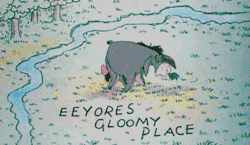Talk in another thread got me to thinking about this. Opinions differ about the "causes" of global warming. Here are a couple of thoughts I have on this. Whether global warming is actually "caused" by man's activities, I think it is safe to assume that even it our activities are not the cause, they certainly help to exacerbate the natural occurance. Whatever tasks would need to be performed to help insure humankinds longterm survival (for example, learning how to, and creating the instruments of, being able to travel beyond the solar system) would benefit from longer time between ice ages. With our seeming inability to co-operate, and not constantly wage war against our fellow man, our very nature puts enough obstacles in our way or progress, without us adding another problem to it, i.e., making the period of time we have to come up with solutions shorter. Therefore I submit that it is in the collective best interests of the human race to not hasten the effects of global warming, whether it is mam made, a natural occurance, or a combination of them both.
I remember something interesting after reading the book by Stephen Hawking, a brief history of time. As someone generally regarded as one of the, if not THE, smartest person on the planet, he attempts to explain the mysteries of the universe by conveying complex theoretical physics concepts in layman's terms (and even then, I still found some of the concepts somewhat confusing). I dont think he even addresses the issue of global warming at all, it is not a function of his book. But he casually mentions something that I always remember. It is a very minor, brief comment, that has no bearing on any great overriding idea, he just mentions it in the course of telling something. He mentions something that over long periods of time, that the orbit of the earth around the sun shifts, bringing it a little closer/little further away from the sun.
"Little" is a relative term here, as the earth is approx 93 million miles away from the sun, so a little in this context would be enough to have a major effect on the planet. I think he made this comment in some type of reference as to why there was an ice age, that the relative small distance that the orbit took was enough to drastically change the environment here on earth. Again, he was not trying to directly or indirectly make any comment about the issue of global warming (the book came out in 1988) but if what he says is true, that lends some support to the idea that global warming would be a natural occurance, and that there would be nothing we could do to stop it. As I said, I think the only thing we could do is not to lessen the time available before the next ice age by irresponsible actions, in order to accomplish as much as we could before then.
|





 Reply With Quote
Reply With Quote





Bookmarks